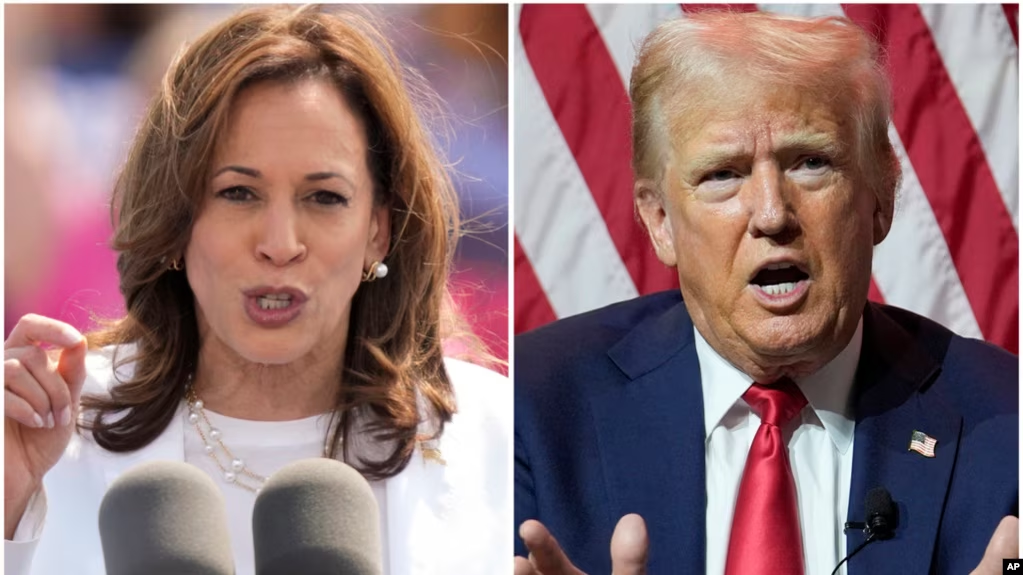WASHINGTON DC: Today marks the beginning of one of the year’s pivotal elections in the US, with a fiercely contested race between Democratic and Republican candidates.
Vice President Kamala Harris and former President Donald Trump are competing for the position of the 47th President of the United States, representing their respective parties.
Trump is seeking a second term, while Harris is stepping up for the role after President Joe Biden endorsed her following his decision not to run.
The election process in the US involves both direct voting and the Electoral College.
Both candidates have concentrated their final campaign efforts on key battleground states.
The outcome of this election could significantly influence global affairs, as many observers have noted. Both sides are making extensive efforts to win the highest office in the world’s superpower.
As in previous elections, key issues include immigration, gun rights, economic opportunities, women’s rights, and increasing global instability.
While there are 231 million eligible voters in the US, only 168 million have registered. A candidate must secure 270 out of 538 Electoral College votes to win, regardless of the popular vote totals.
Despite attempts to revitalize the economy post-Covid-19, rising prices have severely impacted citizens. The costs of food, fuel, and other services have placed tremendous strain on the middle class, making it a critical issue in this election.
The Democratic Party, generally more accommodating toward immigrants, has Kamala Harris as its candidate against Republican Trump, who is dealing with various legal challenges. Both candidates are facing significant hurdles in their bids for the presidency.
Swing states crucial for election outcome
Among the 50 states, seven are pivotal in determining the election results, known as Swing States: Arizona, Georgia, Michigan, Nevada, North Carolina, Pennsylvania, and Wisconsin.
Of these, Pennsylvania— the fifth most populous state—is particularly significant. In the 2016 election, Trump won five of the seven Swing States to become President, while Biden triumphed in six of the seven in 2020.
The significance of Pennsylvania is underscored by the substantial amount spent on electoral advertising, with $1.20 billion allocated to media campaigns in the state alone, which accounts for over 10% of the total $10.53 billion spent nationwide.
The largest Swing State, Pennsylvania, has already recorded early voting by 1.6 million people.
The influence of Nepali voters
There are approximately 25,000 voters of Nepali descent in Pennsylvania, and their votes are expected to have an impact in this election.
Dr. Harry Bhandari, a US politician in Harrisburg for voter awareness, emphasized that this state will play a crucial role in determining the election outcome. He was campaigning with 51 volunteers from Maryland on Saturday.
“We’re engaging in politics to inspire future generations. Kamala Harris is striving to make history as a second-generation immigrant, which will motivate others,” he noted.
Local political campaigner Abhisek Thapa added, “This election is particularly challenging. We believe our (Nepali) votes will influence the results this year. We are reaching out to every household to encourage Nepalis to vote.”
Social worker and activist Binita Puri shared that they are organizing voting awareness rallies, expressing hope for increased voter turnout this time.
The Nepali American community is divided between support for Harris and Trump, with many expressing their opinions on social media in favor of their chosen candidates.
While there are 231 million eligible voters in the US, only 168 million have registered. A candidate must secure 270 out of 538 Electoral College votes to win, regardless of the popular vote totals.









Comment